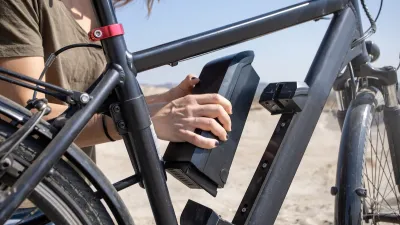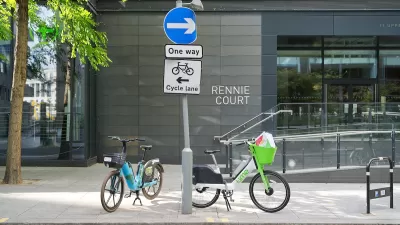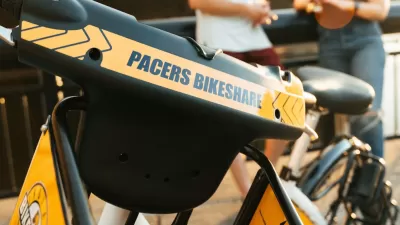A proposal to require insurance for low-speed electric bikes could hamper the adoption of non-auto modes, advocates argue.

“On Thursday, the New Jersey Senate's Transportation Committee is holding a hearing about bill S2292, which would require riders of low-speed electric bikes and scooters to register their vehicles with the state and carry liability insurance to cover themselves and anyone else who might be harmed in the event of a crash.”
According to Streetsblog USA’s Kea Wilson, the insurance doesn’t even exist yet—and the law could have a ‘chilling effect’ on all micromobility modes, including human-powered ones like bicycles. “Serious crashes involving those modes are so relatively rare, though — the National Transportation Safety Board recorded just 119 e-bike-involved fatalities between 2017 and 2021 vs. the 192,709 caused by drivers — so advocates say the legislation would do little more than increase already-steep barriers to human-scaled mobility posed by traffic violence, while undermining the climate, equity, and safety goals that low-speed modes can help communities reach.”
In Europe, e-bikes aren’t held to the same requirements as higher-speed vehicles because they are “not propelled exclusively by mechanical power.” Advocates argue New Jersey and other states should update the definition of ‘pedestrian’ to include low-speed mobility options rather than require insurance similar to motor vehicles.
Matt Moore, general policy counsel for People for Bikes, says the bill could set a dangerous precedent: “because pedal bikes are actually ridden faster on average than e-bikes because they attract more fit and athletic riders, New Jersey might someday argue that riders who don't use pedal-assist should carry insurance, too — and other communities could all too easily follow suit.”
FULL STORY: Why Every E-Biker Should Be Worried About NJ’s Proposed Micromobility Insurance Law

Maui's Vacation Rental Debate Turns Ugly
Verbal attacks, misinformation campaigns and fistfights plague a high-stakes debate to convert thousands of vacation rentals into long-term housing.

Planetizen Federal Action Tracker
A weekly monitor of how Trump’s orders and actions are impacting planners and planning in America.

In Urban Planning, AI Prompting Could be the New Design Thinking
Creativity has long been key to great urban design. What if we see AI as our new creative partner?

King County Supportive Housing Program Offers Hope for Unhoused Residents
The county is taking a ‘Housing First’ approach that prioritizes getting people into housing, then offering wraparound supportive services.

Researchers Use AI to Get Clearer Picture of US Housing
Analysts are using artificial intelligence to supercharge their research by allowing them to comb through data faster. Though these AI tools can be error prone, they save time and housing researchers are optimistic about the future.

Making Shared Micromobility More Inclusive
Cities and shared mobility system operators can do more to include people with disabilities in planning and operations, per a new report.
Urban Design for Planners 1: Software Tools
This six-course series explores essential urban design concepts using open source software and equips planners with the tools they need to participate fully in the urban design process.
Planning for Universal Design
Learn the tools for implementing Universal Design in planning regulations.
planning NEXT
Appalachian Highlands Housing Partners
Mpact (founded as Rail~Volution)
City of Camden Redevelopment Agency
City of Astoria
City of Portland
City of Laramie





























